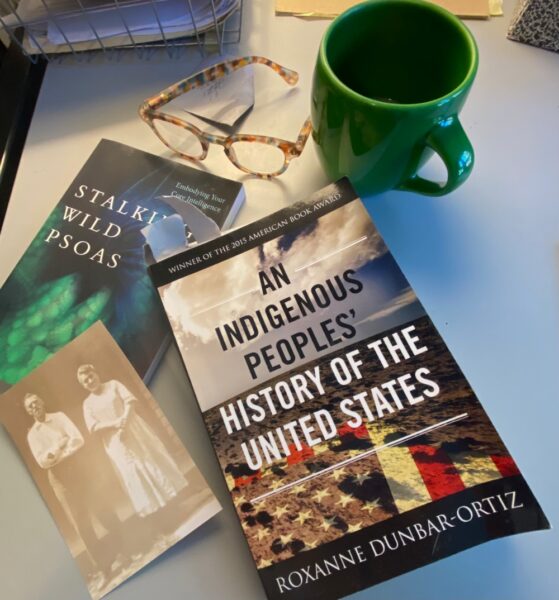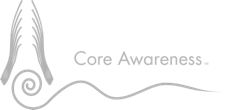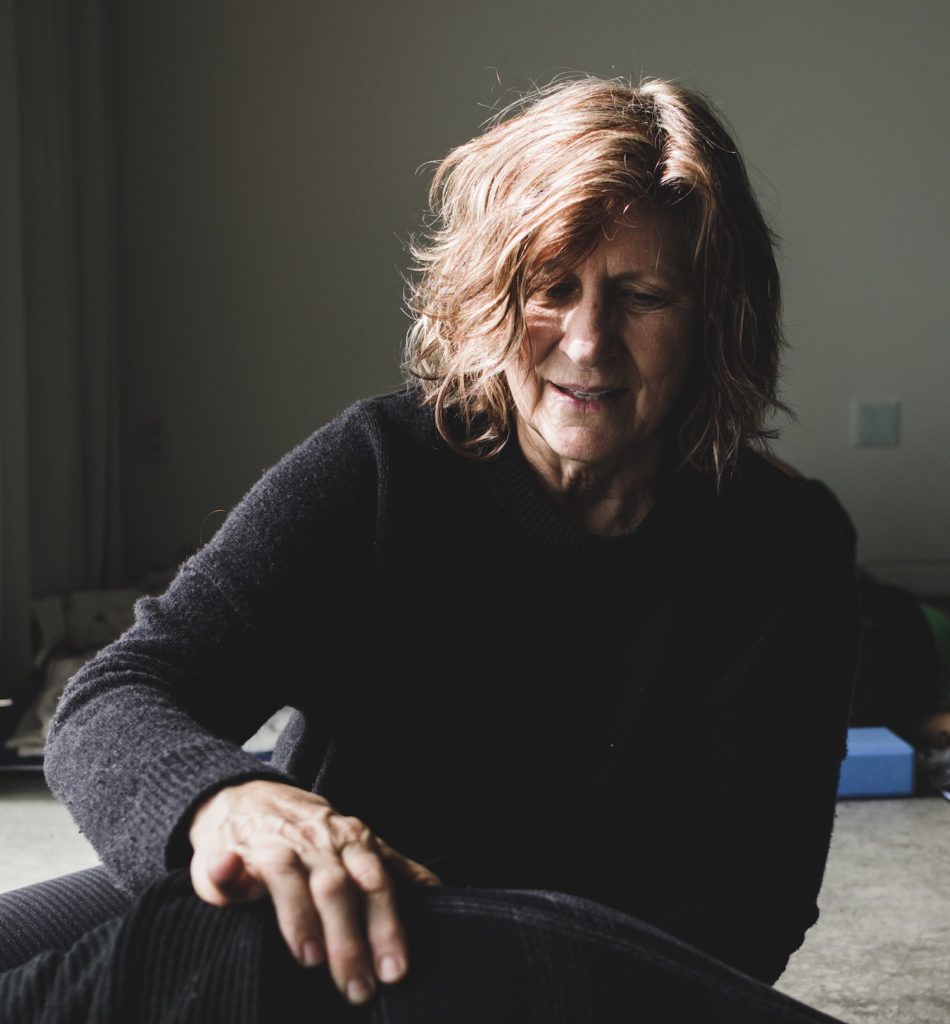
As I sit on zoom with “bodies of culture,” the expression Resmaa Menakem author of My Grandmother’s Hands uses when referring to BOC folk, I sense something stirring deep in my bones…something tragic and mournful traced through the lineage of my ancestors. Images, sensations, a feeling of dry bone emerges that does not elicit dancing skeletons but instead burnt, white dust. These ancestors trekked across an ocean to land weary. My mother’s father’s, fathers’, father’s, father’s mother made from the dirt of this continent was born in 1732. Peering back beyond those 289 years, I wonder what was the impulse for crossing the ocean? Did a coldness set in long before they arrived as “settlers?” Where did these farmers’ ancestors turn a blind eye when they participated in torture and witnessed their loved ones ripped apart? Perhaps what was witnessed was too horrific to speak about, too much to feel, to hold, or to endure? When did the split in their heart and soul give them the right to re-enact and participate in hideous crimes of the First Nations genocide?
Sitting on zoom I listen to people discuss the oppressor’s intention to accept nothing less than a full annihilation of a people. Together we read how genocide was consciously enacted and sanctioned openly by the United States government and we let it quiver in our bones. This group of people on zoom are members of a book club who are reading and discussing Roxanne Dunbar-Ortiz’s book An Indigenous Peoples’ History of the United States. Picking up threads dropped we begin weaving them back and forth, making meaning between our personal lives, our educational recollections, National celebrations, and our systemic experiences of violence – what Dunbar-Ortiz titles one section as “the persistence of denial” in the making of the United States. With entrails of horror so sickening that some of us admit to having difficulty reading this chapter, I reject seeing the words on the page. It feels almost impossible to stay present and hold in focus this soul-sucking ferocious God-hell-fire- shit we call a Republic and our homeland. To read the devastation Europeans thrust down upon familiar communities thriving on Turtle Island is a level of inherited shame. I sense intuitively I must bear it – a reckoning whose time has come.
This historical account, make no mistake, is incredibly well researched and beautifully articulated but the facts. Without any added drama the account is profoundly heart wrenching and soul sucking. To recognize I am part of this ancestral lineage is a bitter pill to ingest, yet it sits in my mouth, rolling around on my tongue waiting to be swallowed. I know it is the medicine for this reckoning – I am the seventh generation. The time has come to gather together to metabolize our collective pain by acknowledging and offering real reparations in both word and action if we are to heal my ancestors, First Nations, and the land.
Together there is a consensus among the men and women in the book club that Manifest Destiny is not over and done with. It is not the past to be mourned; it is the present unfolding right this minute as history is here sitting with us today and weighing on our existence. The stories we tell of the soulful longing of our ancestors who were innocent peacemakers, settlers, brave pioneers seeking a better life (e.g., the “myth of the essential white American”) is an insidious misconception..and essentially – at the heart of it all a rotting lie. The United States is not built on we the people, it is built on the bones of destruction and devastation and we, the inheritors of this legacy, must face it if we hope to have core integrity. Because, whether we like it or not, at the core of the United States as D.H. Lawrence so potently articulates is an American soul that “is hard, isolate, stoic, and a killer. It has never yet melted.”

